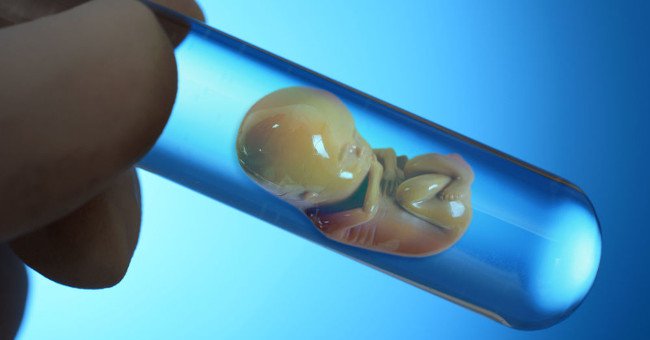Pre-birth genetic testing provides parents with information about whether the fetus has a genetic disorder. In most cases, both parents must carry the gene of the genetic disease so that the fetus can be affected .
1. What is hered genetic disease?
Heredity is transmitted from parents and pathogens that come from within the embryo. Heredity is caused by chromochromotype or genetic modifications. These variations can cause aneuploidy – a deficiency or excess of chromochromochroma.
In trisomy syndrome, an excess mutation of a chroma can cause diseases such as Patau syndrome (an excess of a 13th chroma), Edwards syndrome (an excess of an 18th chroma), or Down syndrome (an excess of a 21st chroma). In monosomy syndrome, the mutation lacks a chroma that causes diseases such as Williams syndrome (lack of a 7th chroma) or Turner syndrome (the condition in which the woman loses part or all of the X chroma).
2. What is genetic testing?
Genetic testing is a type of medical test used to determine changes in the structure of chromotypes, genes or proteins. The results of genetic testing can confirm or exclude suspicion of genetic diseases or determine the development or risk of transmission.
A positive test result means that genetic modification, chromotypes, or specific proteins have been detected. Depending on the purpose of the test, this result may confirm the diagnosis, identify specific gene mutations and the risk of developing the disease (such as cancer) in the future, or recommend additional testing. A positive test result may also have implications for some relatives of the tester.
Negative test results mean no genetic modification, chromotypes or proteins. This result may show that a person is not affected by a specific disorder, does not carry specific genetic mutations or does not increase the risk of developing a genetic disease.

3. Pre-birth genetic testing
Types of pre-birth genetic tests include based on a pre-birth genetic testing chart:
3.1 Pre-birth screening tests
These tests tell the pregnant woman the possibility that the fetus has an abnormal number of chromosomes (heterochromia) and other disorders.
- Screening for the first quarter of pregnancy – the 10th – 13th week of pregnancy:
- Blood tests
- Measurement of nape skin opacity
- Down syndrome screening and trisomy 18
- Screening for the second quarter of pregnancy – the 15th – 22nd week of pregnancy:
- Blood tests
- Screening for Down syndrome, trisomy 13, trisomy 18 and forgotten tropical diseases
- Basic ultrasound – 18th week of pregnancy – 22nd
- Screening for fetal malformations
- Integrated screening and sactance screening – 10-22 weeks of gestation:
- Combining first and second quarter screening results
- Screening for Down syndrome, trisomy 13, trisomy 18 and forgotten tropical diseases
- External free DNA screening (also known as "cellless DNA") – from the 10th week of pregnancy 10 10 years on:

-
- Blood tests
- Screening for Down syndrome, trisomy 18, and trisomy 13 (in some cases)
- This test is more accurate for high-risk women or women who test positive
- Pregnancy test – can be done at any week of pregnancy, however before pregnancy is the ideal time to perform this test
- Tests performed on blood or cheek cell tissue
- Determination of the risk of carrying mutable genes in parents
3.2 Pre-birth diagnostic tests
These tests can identify specific variations and disorders. These tests are performed on fetal cells or vegetable cakes from amniotic puncture or vegetable spikes.
- Vegetable spike biopy – from the 10th – 13th week of gestation:
- Perform a test on fetal cells collected from the procedure to remove vegetable spikes
- Detection of Down syndrome, trisomy 13, trisomy 18 and heredity diseases (as required by maternity)
- Amniotic puncture – from the 15th – 20th week of gestation:

After receiving the results, the obstetrician or genetic advisor will discuss the results of the screening test and help the pregnant woman decide the next steps.
For direct advice, please click hotline number or register online HERE. In addition, you can register for remote consultation HERE
Article referring to Acog.org
- Pre-birth genetic screening test: What to know
- Pre-birth genetic diagnostic tests: What to know
- But 12 weeks pregnant with a large skin opacity should nipt test or amniotic puncture?

